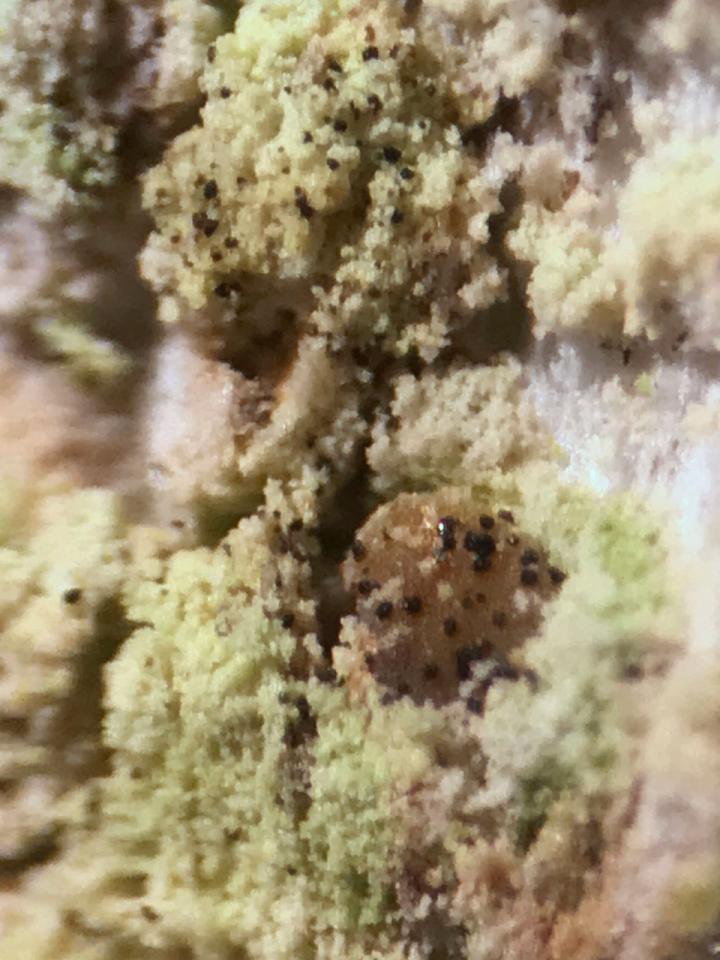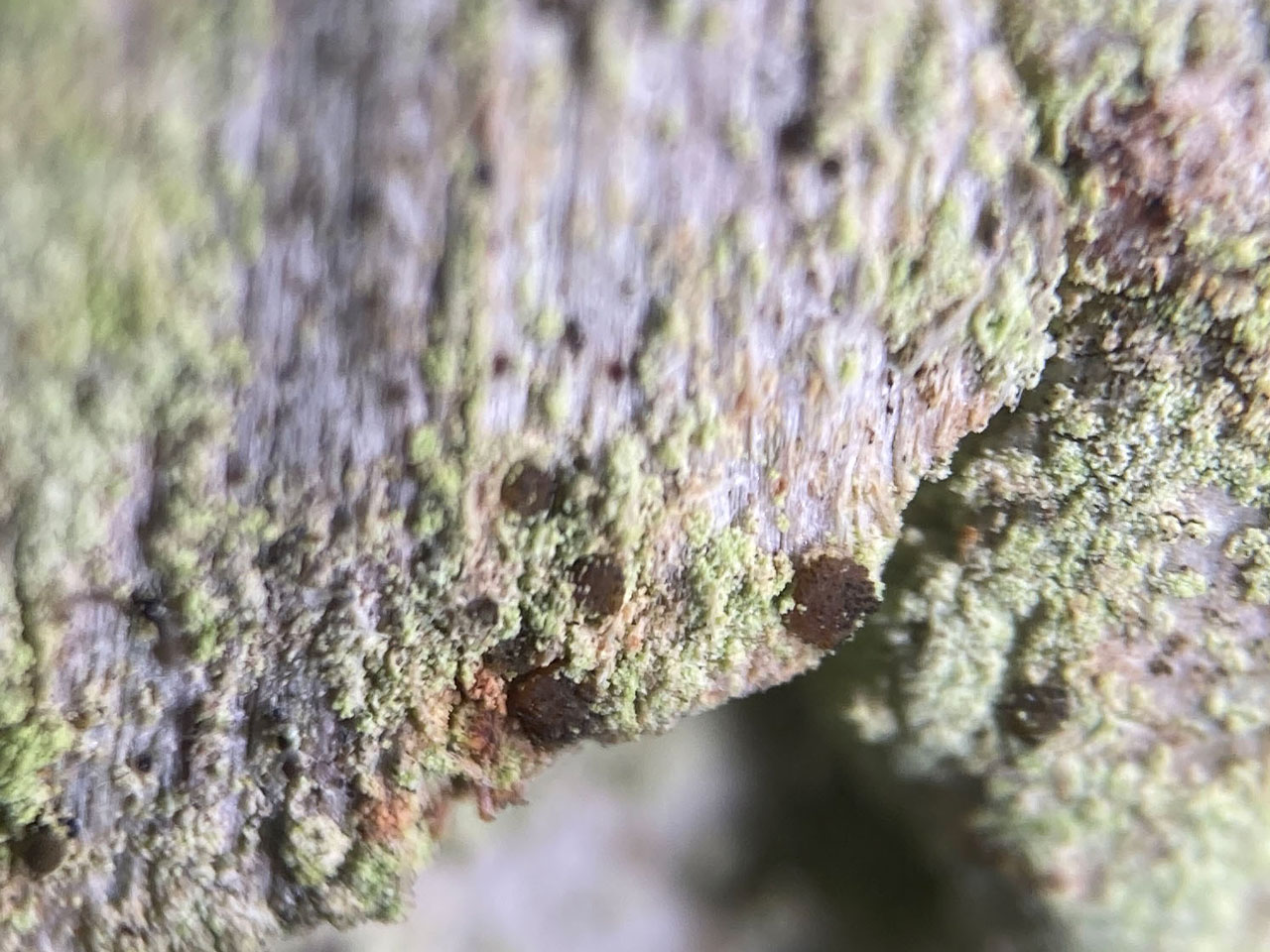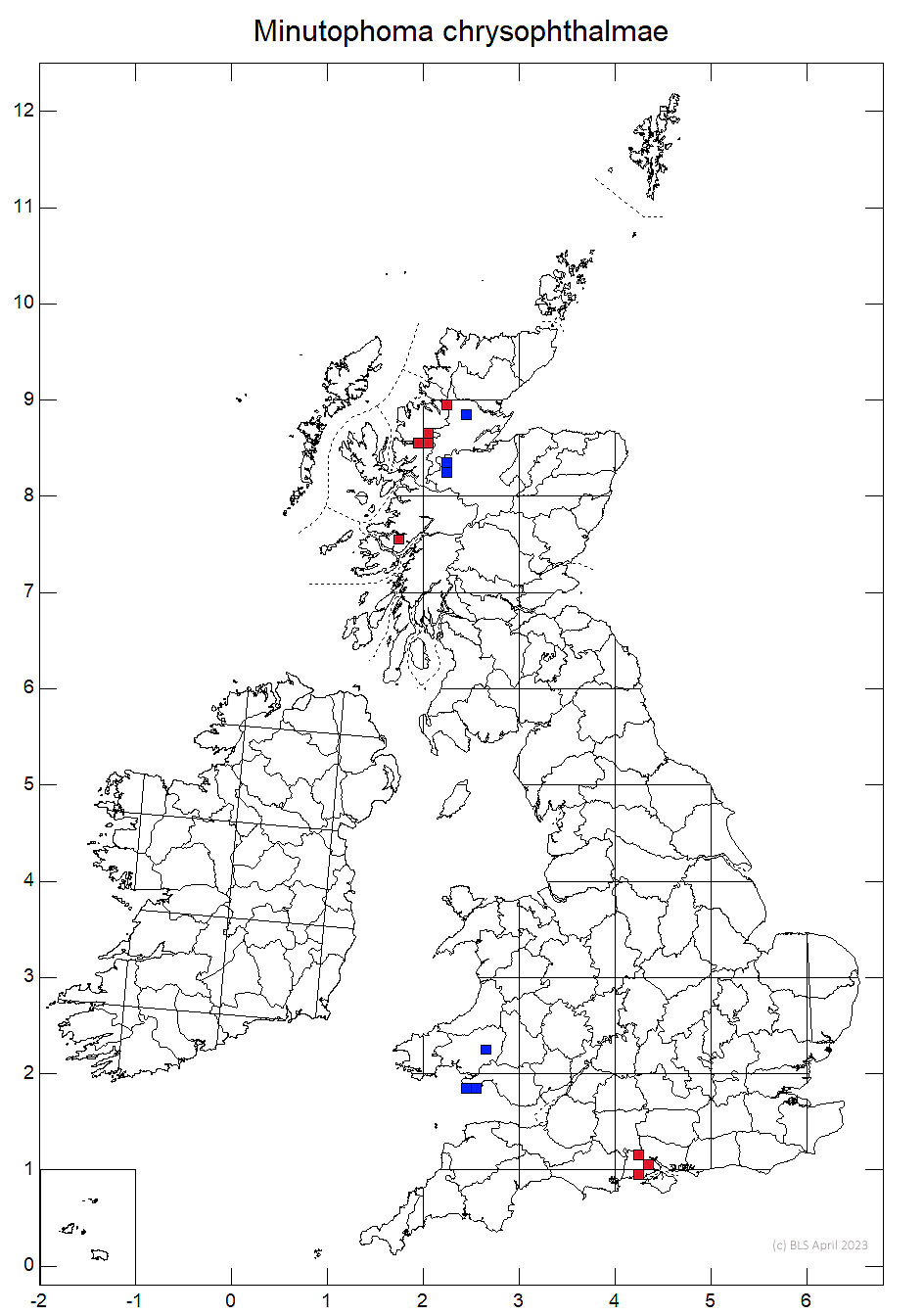Minutophoma chrysophthalmae
Tiny black pycnidia on the surface of the apothecia of Chrysothrix chrysophthalma and Chrysothrix flavovirens, giving them a black-spotted appearance.
Commensal on the apothecia of Chrysothrix chrysophthalma and Chrysothrix flavovirens. Pycnidia 20-40 µm, wall not entire with the base formed largely by the conidiogenous; conidia subcylindrical, 2-3.5 x 1.5 µm see the Draft Artificial Keys to the Lichenicolous Fungi. This fungus is so small it needs deliberate searching for, but the habitat on the apothecia of Chrysothrix species is distinctive.
Originally described from the apothecia of the rare native pine wood specialist Chrysothrix chrysophthalma on the bark of Scots Pine in old growth woodlands. More recently found on fertile Chrysothrix flavovirens on standing dead Oaks and Yew trees in old growth Beech – Oak pasture woodlands and in bog woodlands in the New Forest. Chrysothrix flavovirens, is a common weedy species, but is rarely fertile and is usually only found fertile on large standing dead trees, so this alternative habitat is also rather rare.

So far found in the north and west Scottish Highlands, south Wales and the New Forest. Should be looked for elsewhere on fertile Chrysothrix flavovirens.
Accorded Near Threatened status to match that of its main host, Chrysothrix chrysophthalma, in Woods & Coppins (2012). This will need re-evaluating since it has been found on the much commoner Chrysothrix flavovirens, but this species is rarely fertile and so far the recent finds on the latter have only been made in rare and threaded habitats.
Hawksworth, Atienza & Coppins (2010) Artifical Keys to the Lichenicolous Fungi of Great Britain, Ireland, the Channel Islands, Iberian Peninsula, and Canary Islands. Fourth Draft Edition. Link
Woods, R. G. & Coppins, B. J. (2012) Species Status No. 13 A Conservation Evaluation of British Lichens and Lichenicolous Fungi. Peterborough: JNCC. Link
Text by Neil A Sanderson


